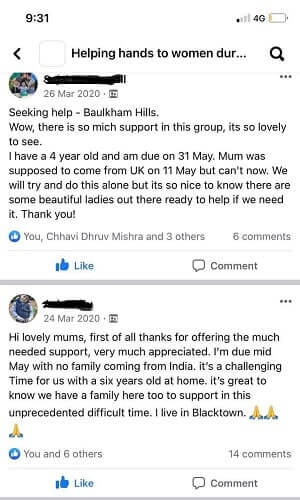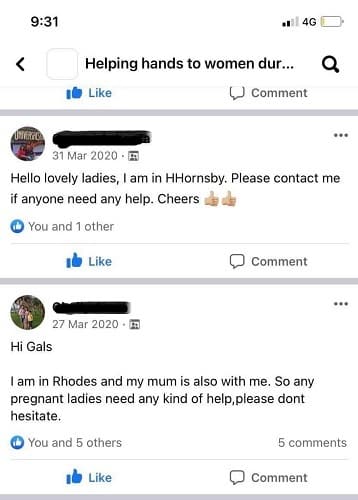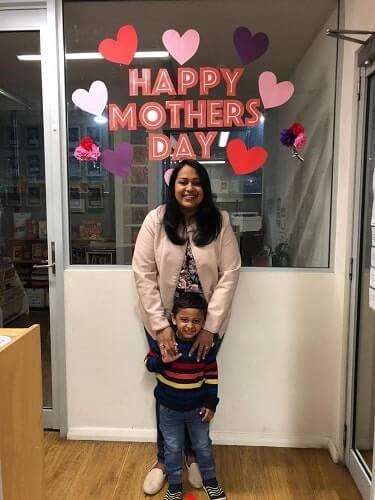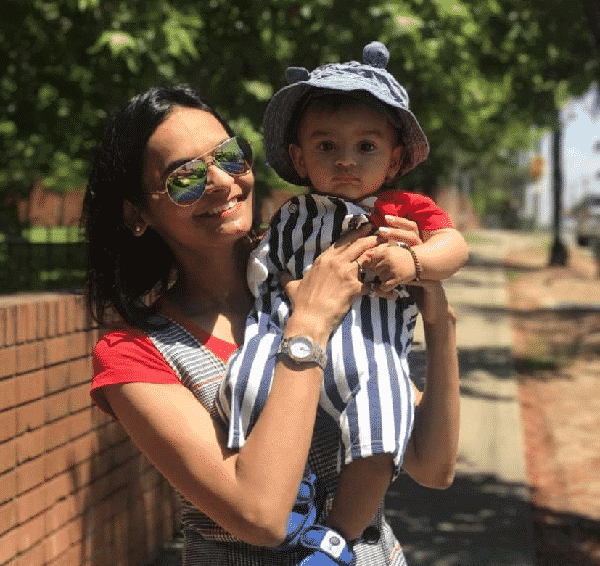A Facebook group launched last year is fast becoming the go-to place for expectant and new mums in Sydney’s Indian community who have transitioned into motherhood with no support from extended family.
When it became apparent in late February 2020 that COVID was going to disrupt our lives in an unprecedented manner, Hetal Bhimani Vasavada began to notice a particular trend on community social media platforms. Pregnant women were posting with concern asking whether their parents’ impending visits – to help with their newborn babies – would have to be cancelled.
“It was clear to me that these women would be having their babies with no outside help,” Hetal told Indian Link.
The 33-year-old automation engineer knew exactly what this meant. When she first arrived in Australia in 2017, she was 32 weeks pregnant with her first child.
“My husband and I were setting up home in a new country – where we did not know a soul, and did not know the systems – at a time when most expectant parents are wrapping up work responsibilities and preparing for the birth,” she recounted. “Luckily though, we did have my parents visit for the first three months after our son was born. For 2020’s new parents, I knew I had to help.”
It all began with a simple post one night on a community Facebook page.
“I live in Westmead,” Hetal wrote. “If you’re going to be at Westmead Hospital having your baby, I’d be happy to help.”
There were 30 replies the next morning.
While some were notes of appreciation for her offer of help, many were from young women seeking help.

READ ALSO: Pregnant? What are your thoughts on the COVID vaccine?
“I’m fond of cooking, and since my husband and I were both working from home, I found we had time to go deliver some food boxes,” Hetal recounted.
Soon other women were posting, saying they could help too.
“The demand was growing for sheera, the kheer that is traditionally fed to new mums in our culture,” Hetal said.
Posts began to appear from other suburbs, seeking/offering help.

The natural next step was to set up a Facebook page dedicated to this new endeavour, and so the private group Helping hands to women during pregnancy/Deliveries was born.
As a young mum herself who has little time to read long posts, Hetal told members to keep it short. “Tell us which suburb you are from, and whether you are seeking help or offering it.”
Today, expectant mums nearing term seek information about what to take to hospital, where to buy baby needs. New mums ask for information on post-natal massages, dietary concerns, breastfeeding issues, and catch-ups for older kids and themselves.
Sleep consultants and maternity support professionals post their availability.
Women with spare time on their hands offer help with cooking, grocery runs and occasional child-minding.
It’s a warm, supportive environment, filled with care and genuine concern and much kindness.
“Many women have said to me, this feels like family when our own family cannot be here,” Hetal smiled.
READ ALSO: A new generation of mums

Post-partum traditions with strong family involvement continue to be robust in our culture, even for those of us who move out of the country. Physical nourishment is paramount, with special energy-giving, immunity-boosting and reparative foods, as well as therapeutic massages. Emotional nourishment is equally important, with freedom from household chores, and much rest, rejuvenation and replenishment. It is a time when new mums need mothering themselves, it is believed, and so convalescence is encouraged in our parental homes, with our own mothers, sisters, aunts all chipping in.
And when we can’t have our real ‘village’ supporting us with our newborns in a new culture, that too in times of COVID-related restrictions, the virtual ‘village’ is filling in quite nicely.
While the women are no doubt accessing the free government services in their areas such as child health centres, how many have Hetal and fellow administrator Chhavi Mishra helped?
“I couldn’t tell you,” Hetal replied with honesty. “It’s on auto mode now. The girls exchange phone numbers and take it from there, and we have no way of following it all up to see if help was delivered effectively. All we’ve done is provide a platform – it’s really the women out there who are helping each other.”
When women support women, amazing things can happen.
READ ALSO: Pocket full of motherhood




